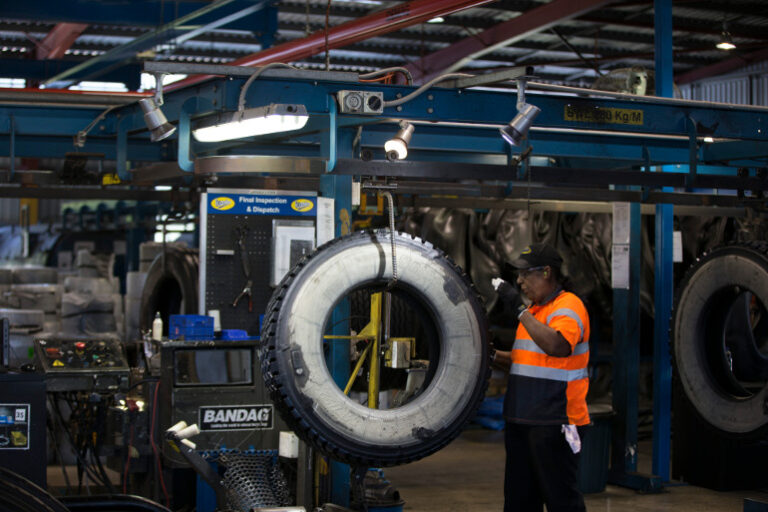Bandag has defied the odds and bucks the trend of local manufacturing. While many industries have become unviable locally, Bandag continues go from strength to strength through its emphasis on quality, and sustainability.
Not only is Bandag’s Wacol plant responsible for producing pre-cured tread for the eight company run Bandag retread factories and 30 licensed dealers throughout Australia and New Zealand, but also is the primary producer for the Asia Pacific region, exporting to Thailand, Fiji, China, Korea and Indonesia, and a key part of the global supply chain for other Bridgestone regions, including America and Europe.
“Bandag punches well above its weight when we’re compared to the challenges and headwinds manufacturing faces,” said Bridgestone’s General Manager of Retread Business, Greg Nielsen.
“Our success is down to our emphasis on quality and adoption of state-of-the-art equipment, ensuring we remain a viable solution for the local market. By focussing on quality, we’ve been able to stay competitive through ensuring that locally made Bandag retreads are comparable to the quality of new Bridgestone tyres.”
The Bandag tread plant in Wacol is the last remaining tread production facility throughout Australia following the cessation of car tyre manufacturing back in 2009 and is a testament to the sustainable nature of retreading.
“As much as this milestone is about Bandag’s heritage, it also highlights the role the company will play for the industry in the future, guided by the values of the recently launched Bridgestone E8 commitment, ” Mr Nielsen added.
A Bandag retread uses considerably less raw materials, including rubber, oil and carbon black, to produce, as well as significantly less water and energy resources than that of a new tyre. In turn, the production of Bandag retreads also supports a reduction in carbon emissions and waste, making it a sustainable choice and long-term viable solution for operators looking to reduce their environmental impact.
“As sustainability becomes an increasingly more important factor for fleet operators, we’re proud to be able to offer products through Bandag that promote material circularity through casing re-use, waste reduction and the use of less resources and materials. Further to this, Bandag is also supporting local jobs and industry,” Mr Barclay added.
History of Bandag in Australia
The formation of Bandag in Australia was driven by Bill McNichol, the founder of Queensland Tyre Retreading Pty Ltd. Having read about the Bandag process pioneered by its inventor Bernhard Nowak in a trade magazine, he sent his eldest son Gordon to Germany to secure information on the process.
With the global rights also sold in 1961 to American businessman, Roy Carver, he then flew to Muscatine, Iowa, to secure the Australian rights to the process, where a draft agreement was formed giving the rights to McNichol to use Bandag equipment and supplies, and following a revision to the agreement, the right to manufacture in Australia.
McNichol imported a complete retreading plant and installed it at his former hot-cap retreading shop at Coronation Drive, Brisbane. Demand saw Bandag expand rapidly with a second plant in Sydney, and then Melbourne and Cairns soon after.
In 1970, the decision was made to relocate and consolidate Bandag’s production efforts into one site, and 20 acres of land was purchased in the Wacol Industrial Estate – where Bandag remains to this day.
Throughout Bandag’s history, the company has gone through several eras of ownership following the death of founder McNichol in 1970, with Blue Metal Industries taking over the Australian operation in 1976, and Boral acquiring the business in 1982.
Bridgestone’s association with Bandag commenced in 2000 when Bridgestone Australia purchased the Australian and New Zealand operations from Boral, with Bridgestone Corporation then acquiring Bandag Inc on a global level in 2007.






